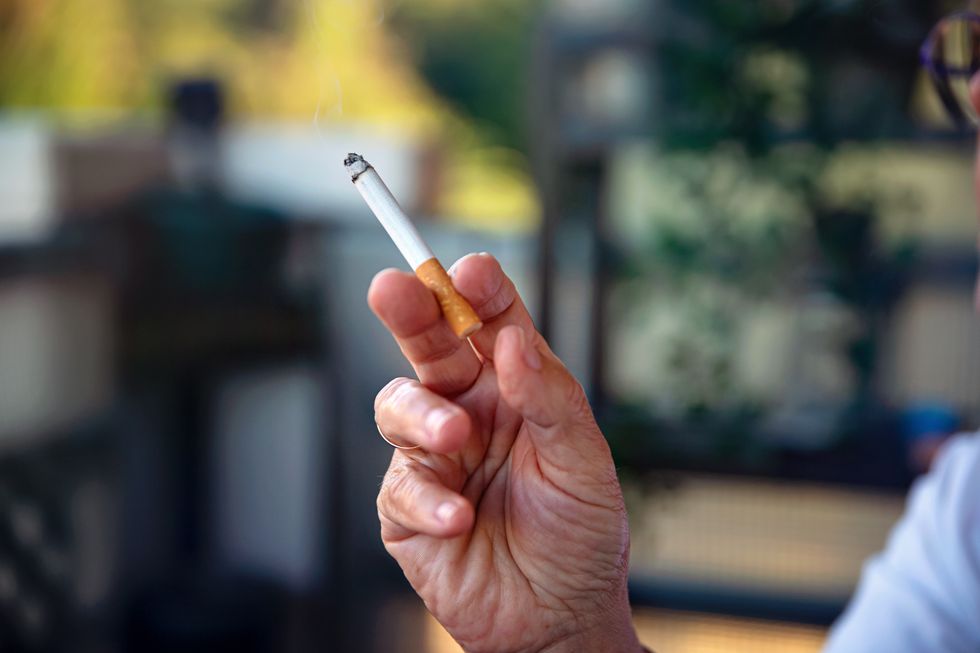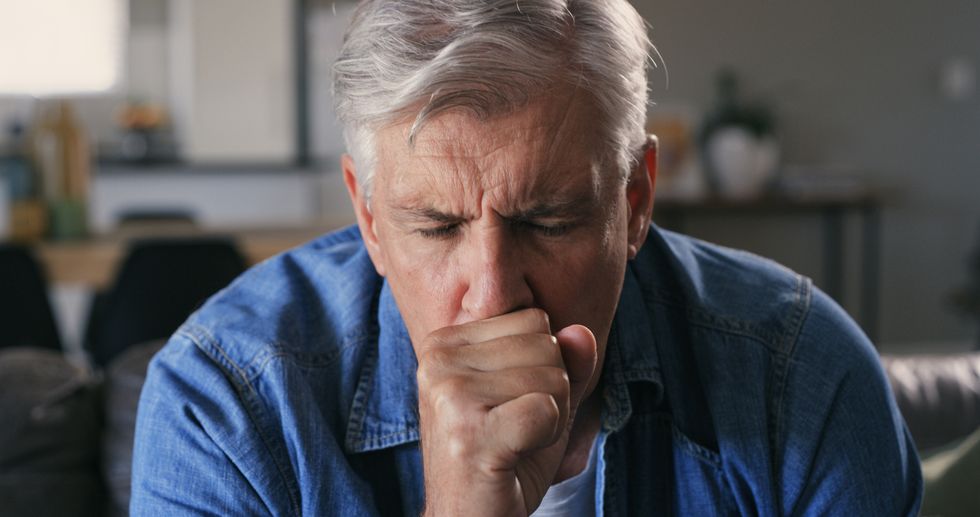Kicking an unhealthy habit can reduce your risk of cancer by over 50%, finds study of 3 million people

Quitting smoking reduces the risk of cancer at any age, new study finds
|Getty Images

Don't Miss
Most Read
Latest
Quitting smoking at any age reduces the risk of cancer but kicking the habit before the age of 50 sees the biggest reduction, a comprehensive new study has claimed.
Researchers arrived at this conclusion after analysing data on more than 2.9 million Koreans, finding that the risk of developing cancer halved in people who quit for at least 15 years, compared with those who continued to smoke.
Smoking is one of the biggest causes of death and illness in the UK. It damages the cells in our body and causes at least 15 different cancer types, such as lung and pancreatic cancer.
To assess the extent to which smoking influences the risk of cancer, researchers studied Koreans aged 30 and older who had two or more consecutive health checks under the National Health Insurance Service in 2002 and were followed until 2019. Their findings are published in the JAMA Network Open.

The biggest drops in risk were observed in quitters under the age of 50
|Getty Images
They checked if participants had developed cancer using cancer registry data.
Of the 2.97 million participants, there was an average follow-up of 13.4 years, during which time 197,000 cancer cases were confirmed. Lung, liver, stomach and colorectal tumours were recorded over the course of the study.
So, what did the researchers find out?
After an average follow-up of 13 years and five months, the risk of lung cancer among those who quit dropped by 42 percent, with smaller falls of 27 percent, 20 percent and 14 percent recorded for liver, colorectal and stomach cancers respectively, compared with those who continued smoking.
The biggest gains were recorded in those who kicked the habit earlier rather than later, with the risk of lung cancer falling by 57 percent in under 50s compared with those who continued to smoke.
Those who quit at 50 or older experienced a 40 percent reduction in lung cancer risk over that time.
The results are consistent with previous studies. A 50-year observational study published in the British Journal of Cancer found that lung cancer risk increases with both smoking duration and amount but duration has the most effect on risk.
Furthermore, lung cancer risk is around 26 times higher in men who smoke 15-24 cigarettes per day, compared with people who have never smoked, a cohort study showed.
How do I know if I have lung cancer?
Lung cancer doesn't always cause symptoms in its early stages. Many of the signs and symptoms can also be caused by other medical conditions but finding lung cancer early can mean that it's easier to treat.
LATEST DEVELOPMENTS

Having a new cough is a telltale sign of lung cancer
|Getty Images
That's why it's vital to get any symptoms or changes checked out by your GP as soon as possible, notes Cancer Research UK.
The most common symptoms of lung cancer are:
- Having a new cough or a cough most of the time
- Getting out of breath doing the things you used to do without a problem
- Coughing up phlegm (sputum) with blood in it
- Having an ache or pain in the chest or shoulder
- Chest infections that keep coming back or a chest infection that doesn't get better
- Losing your appetite
- Feeling tired all the time (fatigue)
- Losing weight.
What else can I do to reduce my risk of lung cancer?
Most cases of lung cancer are caused by smoking, although people who have never smoked can also develop the condition.
Exposure to radon can hike your risk. Radon is a natural radioactive gas that comes from tiny amounts of uranium present in all rocks and soils. It can sometimes be found in buildings.
"If radon is breathed in, it can damage your lungs, particularly if you smoke. Radon gas causes a small number of lung cancer deaths in England," explains the NHS.










